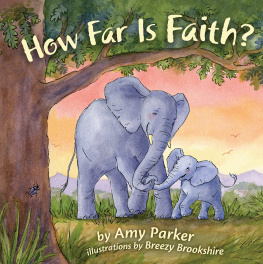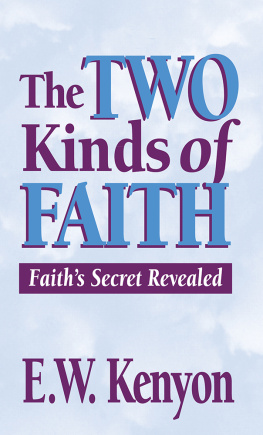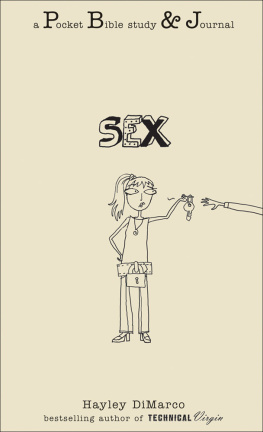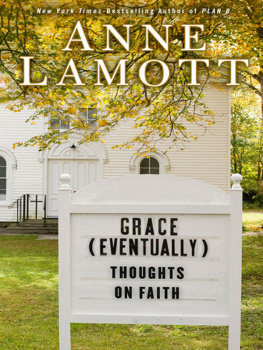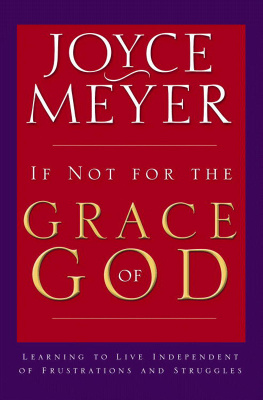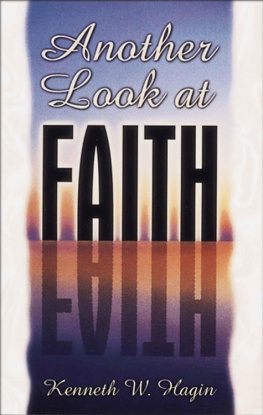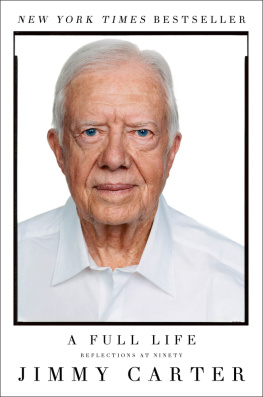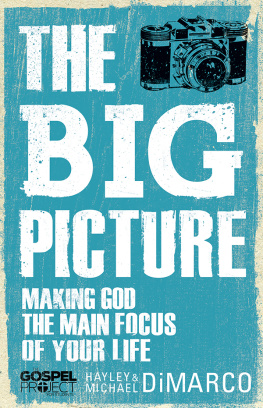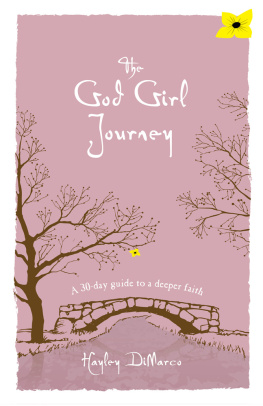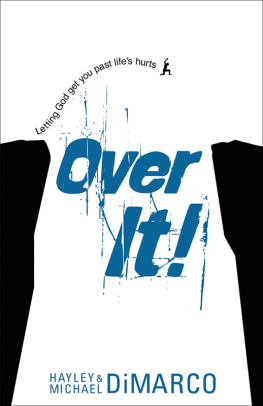
Own It, Digital Edition
Based on Print Edition
Copyright 2013 by Coran Deo Studios, Inc. and Hungry Planet
All rights reserved.
Printed in the United States of America
978-1-4336-8202-5
Published by B&H Publishing Group,
Nashville, Tennessee
Dewey Decimal Classification: 234.2
Subject Heading: FAITH \ SPIRITUAL LIFE \ SELF
Unless otherwise stated, all Scripture references are taken from the Holman Christian Standard Bible ( hcsb ), Copyright 1999, 2000, 2002, 2003, by Holman Bible Publishers. Used by permission.
Also used: New Living Translation ( nlt ), copyright 1996, 2004, 2007 by Tyndale House Foundation. Used by permission of Tyndale House Publishers, Inc., Carol Stream, Illinois 60188. All rights reserved.
Also used: esv Bible (The Holy Bible, English Standard Version) copyright 2001 by Crossway Bibles, a publishing ministry of Good News Publishers. esv Text Edition: 2007. All rights reserved.
Also used: New International Version ( niv ), copyright 1973, 1978, 1984 by International Bible Society.
Introduction
Disowned
Theres an ancient story told of a young man who disowned his father. He cut all ties and just walked away. He was tired of living at home under his rule. He wanted a fresh start and independence. He was done being the son and wanted to be the man, so he told his father to give him what was rightfully his, but his inheritance wasnt technically his until his father was dead. In this request for an early cash-out, the young man essentially told his father he wished he were dead.
This is the famous story of the prodigal son, told by Jesus to the men who sat at His feet. In this parable, Jesus gave the backstory of a boy who wanted to define his own life, to own his own decisions, and to make his own way, but not without the financing of his father. And so he took from his dad what he needed, to do what he wanted, and he left. He made his way into the life he believed to be far better than living as one controlled and indebted to his father. And he lived relatively free until, ironically, all he had taken from his father had dried up. When the money was gone, so was his joy, his freedom, and his hope. And so after spending time watching pigs eat better than he was, he returned home. Hat in hand and much wiser for the experiences he had lived, he returned with the idea of rejecting his self-serving ways and, instead, fessing up to his royal idiocy and accepting whatever scraps his father would throw his way.
As the child who had previously disowned his father returned, the father was waiting, not with an angry fist or a long lecture, but with outstretched arms. The father proved himself to be worth much more than the inheritance his child had blown; he had never disowned his son even though his son had disowned him. This action alone was worthy of the honor of being called father. Rather than demanding payment from the son for his hurtful and selfish choices, the father gave even more to the son from what he had left.
This story, though put into our own words, came from the mouth of Jesus and it shows how eager God is to lovingly restore those who have wandered. If you have doubts, if your faith is weak, even if you disowned your faith or have been disowned by those who used to love you, this book isnt about accusing you but setting you free. It isnt about rejecting you but helping you to sort it all out. If your faith hasnt disappeared completely from your life but has lost its fire or never has been much to write home about in the first place, this book is for you as well. The difficulty of faith doesnt come from the lack of feeling or even action but from the lack of divine knowledgethe knowledge of who God is and of the depth of His love. Your faith isnt so much about what you have done or not done, but what God has done and how much He has loved you. The most awful thing about faltering faith isnt the human relationships that can suffer, though they are tragedies, but it is the fact that you are missing out on the love and acceptance that God has waiting for you.
When you own your faith, you possess all of the love that God has for you. It covers you, fills you, fulfills you. It takes all the struggles that used to plague you and leaves you with peace. It takes all the sadness and replaces it with joy. When you own your faith, you are a changed human being. You are a safe human being. You dont rely on others to affirm you or to accept you, but you are still able to accept and love them. You are able to love unconditionally and any rejection others may offer is no longer something you take personally. Thats because when you own your faith, the love of God eclipses all other loves and, since His love is perfect, solid, and unshakable, you never have to fear again. You are never alone again, never helpless or hopeless.
If your faith has never given you such wonderful things, then have no fearthings can change, but you must be willing to thoughtfully consider the words you will be reading in this book and ask yourself if your understanding of who God is has been accurate or only a shadow of who He truly is. Our goal here is to help you to be free from the doubt that plagues you, the distance that separates you, the weaknesses that cripple you, and the powerlessness that affects you. You may even know it in your head, but do you really own it? At the very least, join us in a conversation about what it means to own your faith and if its even worth owning. Its our prayer not that you will be indoctrinated but illuminated. Because a life lived in the light is a life that is truly owned by its occupant. So lets discover and uncover what Own It really means.
What Is Owning Your Faith?
Weak faith in a strong object is infinitely better than strong faith in a weak object.
Tim Keller
Ownership is a powerful thing. It makes people feel thingsthings like love, pride, responsibility, and even jealousy. Ownership colors a persons view of the object of their possession and its value. What you feel for something you own is completely different from how you feel about something that isnt yours. Thats why people tend to care about their own stuff. Ownership feeds devotion and it often dictates action. For example, people tend to take better care of stuff that they own than stuff that they rent. And they love the stuff they own more than the stuff they borrow. How many times have you lent something to someone who didnt take care of it the way you do? When you borrow something, your attention to it is temporary. Ownership conveys permanence. The stuff you own matters to you.
But ownership doesnt just apply to things; it also applies to lives. Have you ever met an animal person who loved their pet so much that they treated it like a child? There are some powerful emotions that come from having a living thing that belongs to you. When people fight for their country, when they fight for their loved ones, its because they are their loved ones. Arent the other countries and families just as valuable? Yes, but they are not theirs and so they fight for what is theirs. Children, even those who are abused by their parents, are born with an innate ability to love their parents, simply because they are theirs, regardless of how horribly they treat them. Though that can dissipate with time (and abuse), its there to begin with. And the same is true for parents; they feel a deep sense of ownership for their kids, not the kind of ownership of slave and master, as some kids might believe, but a kind of ownership that instills an enormous degree of love and pride that only your own kids can illicit, no matter how much they may or may not deserve it.
Next page

